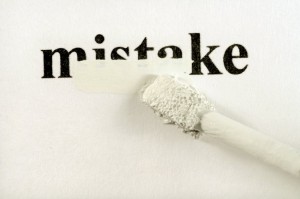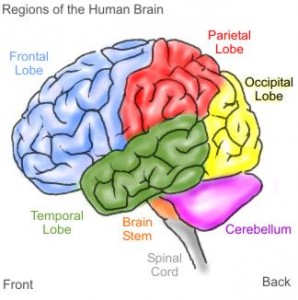“We learn more from our failures than from our successes.” You probably have heard of that phrase more than once in your life. And you may have even thought of the phrase as untrue. We make little mistakes repeatedly all the time: forgetting to put soap into the dishwasher, not thinking before we speak, eating too many sweets. We don’t always learn from those mistakes. Rather, we often repeat them.
But mistakes can separated into many categories: From stupid mistakes, like stubbing your toe; to simple mistakes, like missing the bus. There are also more complicated mistakes that may result from sequences of mistakes building upon each other, leaving you with relationships that fail, a negative outcome to a significant event, or a poor grade in school.
Researchers from the University of Exeter have found that we do learn more from our failures than from our successes, especially when it comes to more involved and complex mistakes.
Complex mistakes often result from errors in predictive judgement. In other
words, every decision we make is predictive of the final outcome. Good judgement results in success, while poor judgement may leave us with failure. The study done at the University of Exeter used electrophysiological measurements (electrodes) to monitor the brain activity of volunteers when a prediction was made on a computerized task, and after new information was introduced, which make their predictions incorrect. The volunteers needed to learn from the incorrect prediction in order to stop repeating the error. A strong brain signal was measured in the lower temporal region of the brain every time the volunteer was presented with visual that had previously cause them to make an error, and before there was time to consciously make a better decision. This early “warning signal” immediately alerts us of our previous mistake and prevents us from repeating it.
Researchers from Michigan State University have also found that the brain reacts differently when one thinks that they can learn from a mistake verses someone who doesn’t think that they can learn from a mistake. When one believes that they can learn from an accepted mistake, the brain is tuned to pick up on mistakes faster.
References:
http://research.msu.edu/stories/learning-our-mistakes-hardwired
University of Exeter. “Why We Learn From Our Mistakes.” ScienceDaily, 2 Jul. 2007. Web. 14 Mar. 2012.
Wills, A.J.,Lavric, A, Croft, G. and Hodgson, T.L (2007). Predictive learning, prediction errors and attention: Evidence from event-related potentials and eye-tracking. Journal of Cognitive Neuroscience. 19, 843-854.


